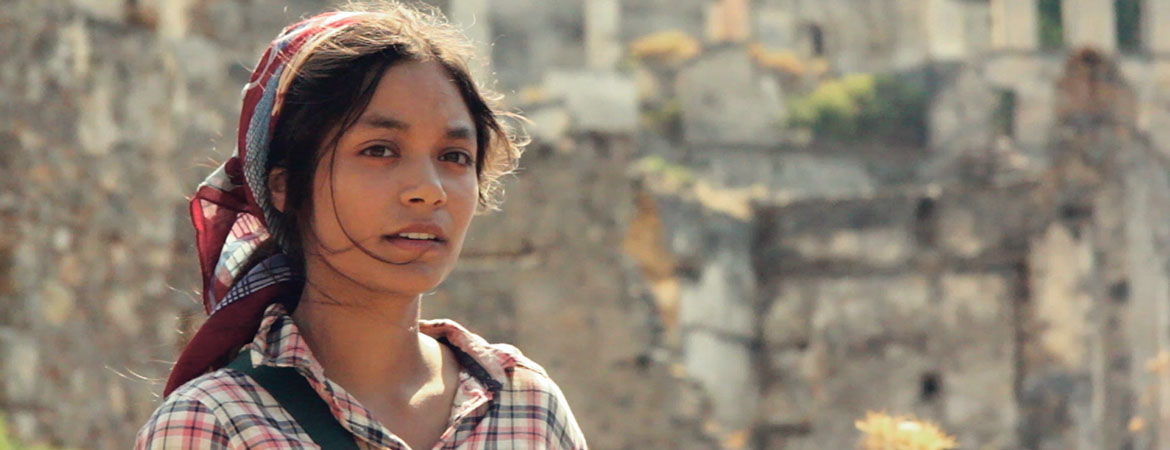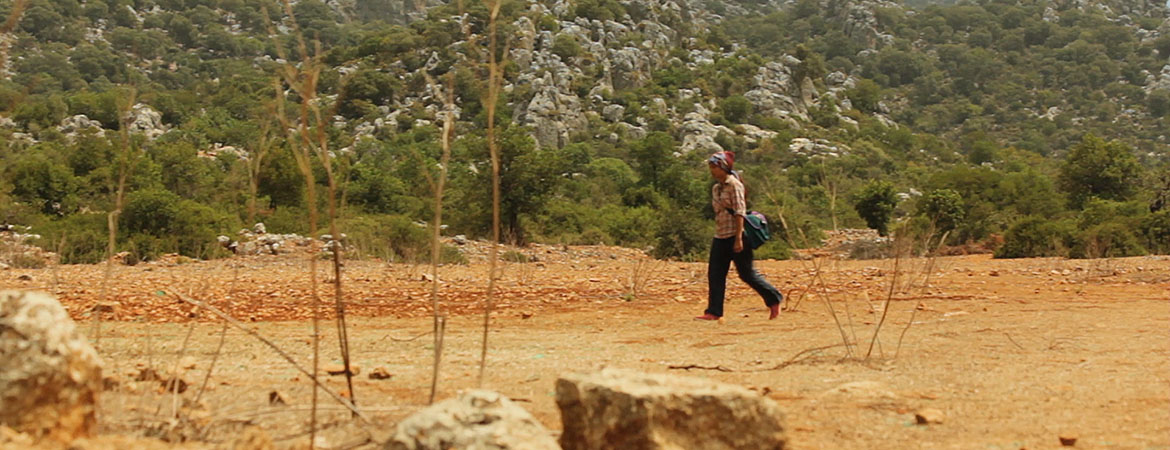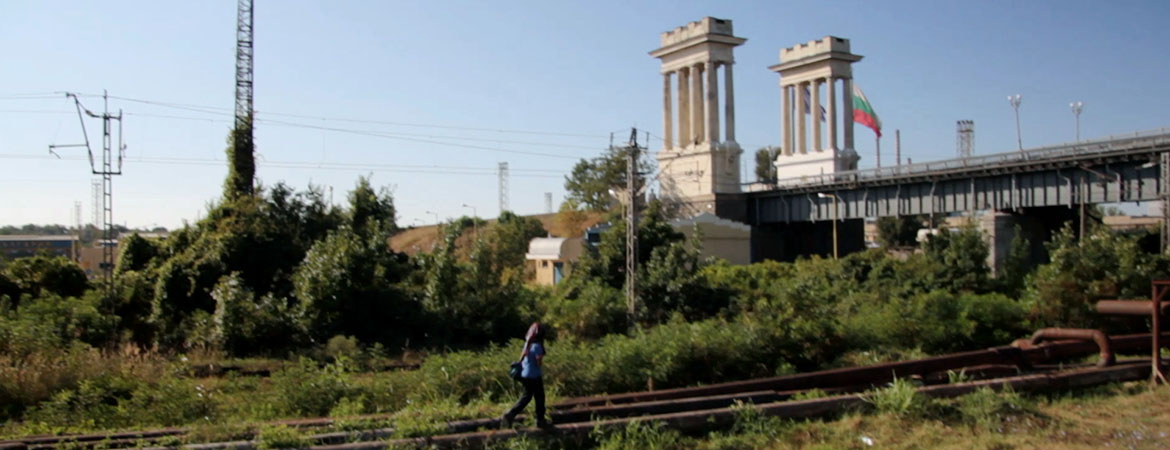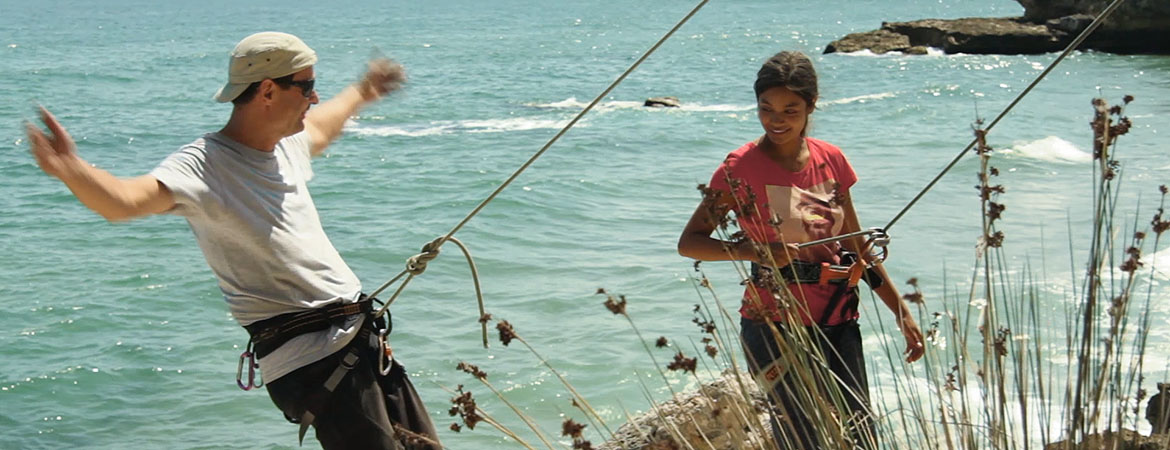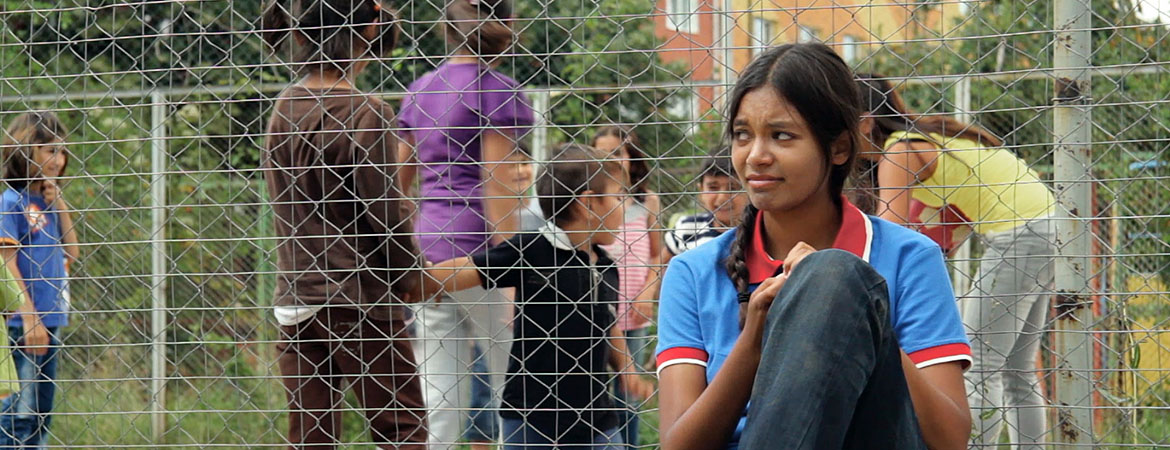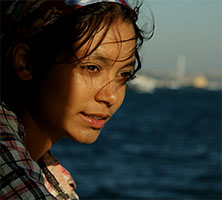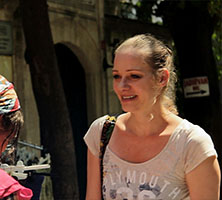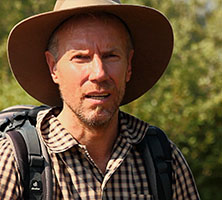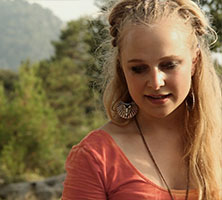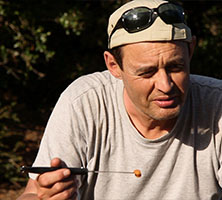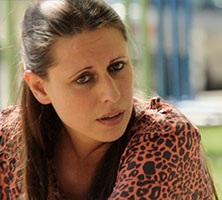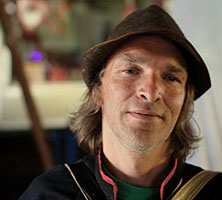Interview Film festival Oulu:
EUROPE 5 DAYS – BE TRUE TO YOURSELF
Interviewer: Camilla Perttula
“The Movie Europe 5 Days is targeted to young people aged 12 to 99 years, who prefer questions and unusual movies. Someone who is willing to interpret without expecting a clear reply. An audience leaving the cinema hall that begins to discuss about refugees, young people, dreams and illusions.”
In Europe 5 Days a young Turkish girl, Ayla, gets an idea from two hiking German tourists to go to Europe, especially to Germany and go to school there. And that is exactly what she does. She runs away from a village where she lives with her grandfather. Ayla meets different people from all around Europe on her journey. With her endless wish to learn and adventure she gets in trouble, just like teenagers usually do, but finally pushes through hard times. Europe 5 Days is a self-funded movie with a relatively low budget. It is directed by Friedl Wolffhardt and Orsa Repp. The film is primarily told in images to give room for emotions and interpretations, ask questions rather than give answers. It wants to slow down the high speed of the usual teen series.
“What we hope the movie tells to the teenagers: Be true to yourself and believe in your dreams, even if they seem out of reach! Be brave and nosy! It is always surprising how much trust, how much confidence in their own strength young people have. They go into the most dangerous situations without calculating the consequences, even if their parents and grandparents have warned them over and over again,” Repp and Wolffhardt tell.
Europe 5 Days is quite political and pays attention to how teenagers act and also to the refugee situation. Repp and Wolffhardt want to get people discussing about their opinions, thoughts and even criticize. At best they hope that people sleep one night and then think about the movie again.
“We wanted to make a film that does not divide the world into good and evil, but takes a more observing gaze, without judging what is right or wrong. Each character looks at the story from his own perspective and of course comes to different judgments.”
The main character Ayla does not make the most smart decisions, at least from an adult point of view, but she gets all the time closer to her goals; to get to Europe and to Germany. At the end of the film Ayla stays with a drunk clown to learn more. To an adult this seems to be a horribly irrational decision but to Ayla it is just a pit stop before actually getting where she wants. This tends to get adults to think what is the actual mindset of a teenager.
“Do you really believe Ayla stays with her current companion, the clown? So as we know her, we do not believe that,” the directors note.
Ayla is smart so she learns quickly. Ayla didn't want to have any doubts about her plans, so she secretly disappeared. And to see the grandpa sitting in his garden at the end of his life, knowing the girl's life is just beginning, one can certainly assume that he understands her action somehow. After all, he does not send the police after her.
Asking how well does the situation go with an under aged girl in a foreign country without a passport, I get an informative answer. No office in Germany sends an under aged girl back to her home country if it is not clear where she lives and who looks after her, who and where her relatives are and who will take care of her. So she has a good chance to stay in Germany for the next years if she gets there.
“Registered in Germany, she actually has the opportunity to go to school to learn German and to get a school diploma, we know that because we are professionally working in this field for years,” the directors tell.
There is a growing amount of refugees all over the world and different cultures are mixing together. The young people, who will live with refugees over decades, have the chance to integrate people and cultures.
“When you're young you think, you could change the world. The experiences one makes when he is trying to go his own way is part of the process of growing up. And this of course includes the failure of ideas and dreams and this includes the successful battles also. A baby needs to be confident that it is fed, a child needs to be confident that it is protected by the adults, and a young person needs to trust that someone understands his differing ideas. He has no other chance,” summarize the directors.
“In rural areas and especially in educationally disadvantaged classes in East Germany some young people fear that strangers would steal their jobs and future. But it is interesting, in fact, there are almost no refugees in these regions at all, so that young people's fear could be for sure reduced by a real contact with these people from foreign countries. In Europe hundreds of millions of people live, and so, even if two million refugees are coming to us we think as our Chancellor Merkel: 'We can do it!'“
People in the world are getting closer and closer to each other via internet and they can research more and explore even from homes.
The reason young people want to travel is to leave the old behind and explore new worlds. The uncomfortable teenagers are the ones changing the world. The directors are sure, it is a kind of "living wild and dangerous", that young people want and need to find their way with their head held high.
“It is utopia to believe, that there will be a world without borders in the coming decades,” Repp and Wolfhardt agree.
“Although the younger generation uses the internet, in lots of countries old people on the countryside can neither read nor write, and their traditions are still very important for young people, even if they don't post this part of their life on the internet. “While brands and fashions seem now similar throughout the world, values, family structures and traditions which are still different rarely find their way into the international World Wide Web.”
What is a good life? This is a question the directors Repp and Wolfhardt wonder about. People define the question differently.
“Enough food, political security, but little chance of another life can definitely produce a strong desire to find a different world. Most young people want to live differently than their parents and grandparents, to find their own identity, especially in adolescence. And people always dreamed, there could be a better world somewhere far away,” they conclude.
“What interests us above all: The film is a self-financed low-budget project with a budget of less than 25,000 Euros. It wants to differ deliberately from commercial films with related topics. Can the movie widen the film landscape or will it fail to do it?” That is left to the audience to decide.
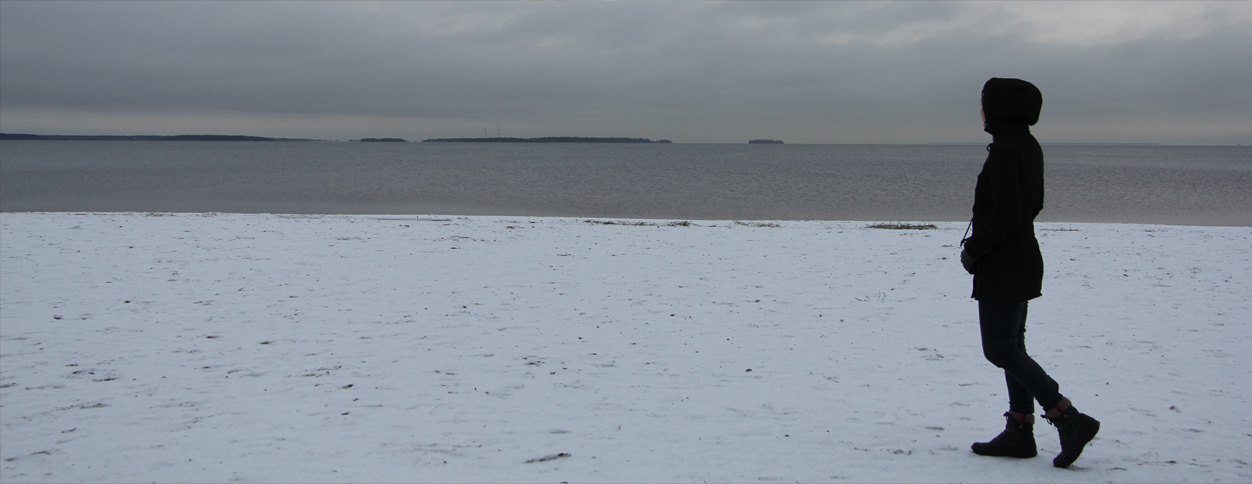
Orsa Repp at the finish seaside

